What Do You Take for Sore Muscles
This post may contain affiliate links which won't change your price but will share some commission.
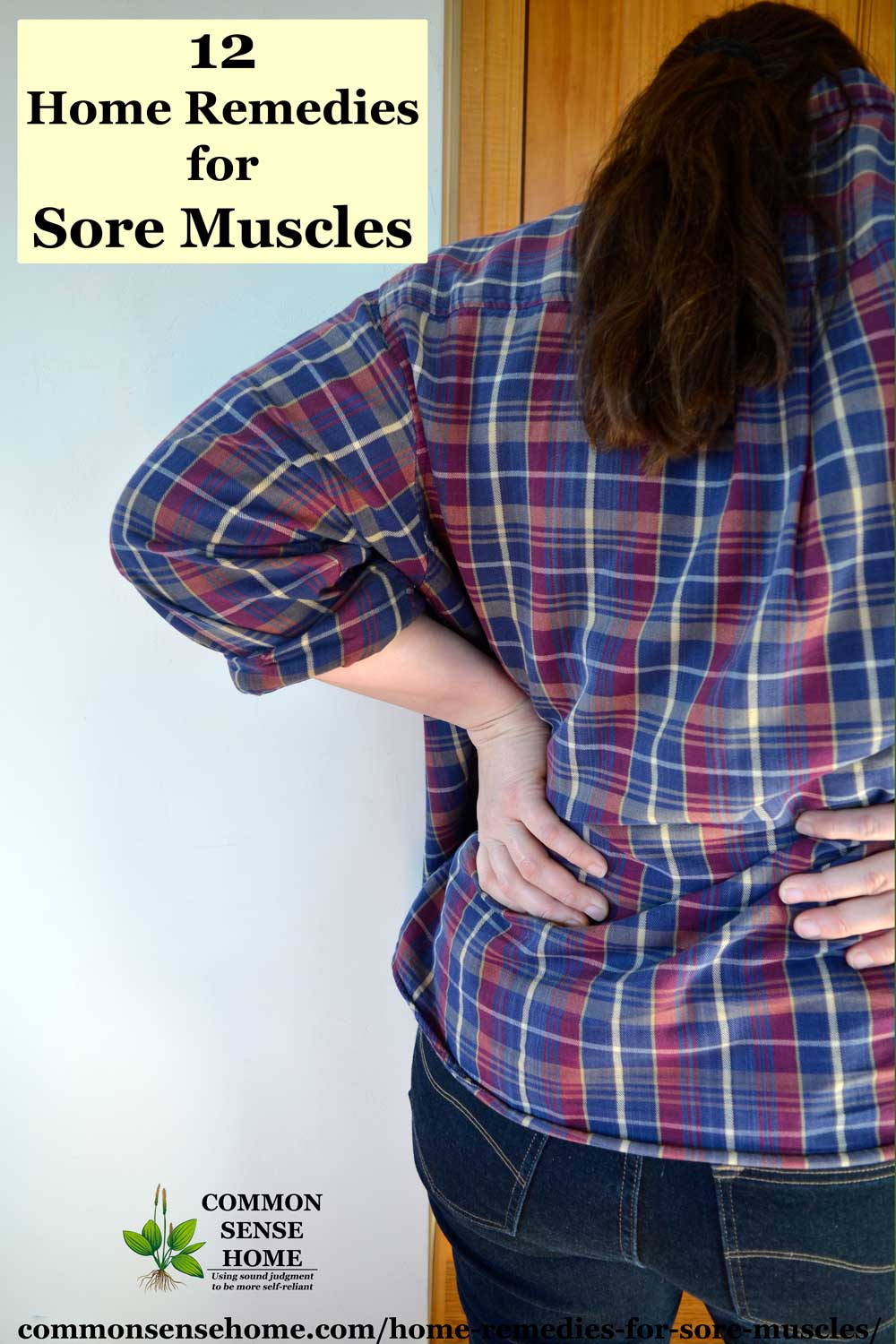
Whether you're dealing with delayed onset muscle soreness after workouts (and work) or sore muscles for "no reason at all", something's going on in your body to make you uncomfortable. In this post, we'll talk about common causes of sore muscles and how to get rid of the ache, including topical treatments, essential oils and supplements.
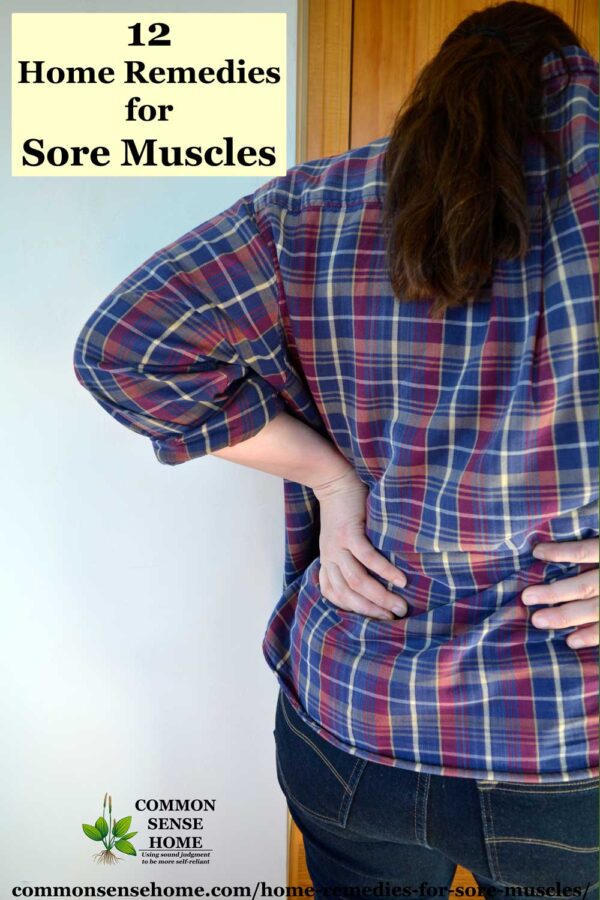
Always remember, if pain is severe or incapacitating, please see your health care professional. This post is for informational purposes only, and is not intended to replace trained medical advice.
Contents
- What Causes Sore Muscles?
- Soreness After Exercise
- Are sore muscles a good sign?
- Cramps, Sprains and Strains
- 12 Home Remedies for Sore Muscles
- #1 – Prevent Sore Muscles with Water
- #2 – Topical Magnesium – Epsom Salts and Magnesium Oil
- Epsom Salt for Muscle Pain Relief
- Magnesium Oil Stops Leg Cramps
- #3 – Heat or Cold – Which is Better for Sore Muscles?
- #4 – Oral Magnesium
- #5 – Essential Oils for Sore Muscles
- #6 – Movement
- #7 – Massage
- #8 – Hot Pepper Rubs
- #9 – Rest
- #10 – Tart Cherry Juice Helps Sore Muscles After Workout and Increases Muscle Strength
- #11 – Apple Cider Vinegar (ACV)
- #12 – Coconut Oil
What Causes Sore Muscles?
Sore muscles may be linked to a variety of causes, including:
- Dehydration
- Exercise, injury or overuse
- Blood flow problems from illness or lack of activity
- Lack of minerals such as calcium, potassium and magnesium
- Certain medications, like statins, chemotherapy drugs and anesthetics
Soreness After Exercise
General soreness after exertion (Delayed onset muscle soreness (DOMS)) is typically cause by micro tears in the muscle fibers. Lactic acid can also build up in the muscles, increasing irritation.
Over time as the tissue rebuilds itself stronger to accommodate the activity, muscle soreness should decrease. You can read more about this at "What Causes Pain and Soreness After Exercise".
Are sore muscles a good sign?
It depends. Post workout soreness in the first 72 hours is normal, but soreness that lasts more than 5 days may be a sign of overexertion or damage. Gradually increasing the intensity of your workout (or work load) can help reduce the risk of injury.
Cramps, Sprains and Strains
A muscle cramp, is "a strong, painful contraction or tightening of a muscle that comes on suddenly and lasts from a few seconds to several minutes".
A muscle sprain is "an injury to a ligament (tissue that connects two or more bones at a joint). In a sprain, one or more ligaments is stretched or torn". A muscle strain is an injury to a muscle or a tendon (tissue that connects muscle to bone).
In a strain, a muscle or tendon is stretched or torn. Sprains and strains are generally caused by trauma (falls, twists, impacts) or overuse.
Muscle soreness from cramps can usually be addressed with home care. Sprains and strains may require professional care and physical therapy.
12 Home Remedies for Sore Muscles
These home treatment options for sore muscles cover ongoing self care as well after workout tips to get rid of muscle pain.
#1 – Prevent Sore Muscles with Water
Start simple. Dehydration can cause muscle soreness, hydration can help prevent it and clear it. It's not a quick fix, it's a general self-care tip. Stay hydrated!
#2 – Topical Magnesium – Epsom Salts and Magnesium Oil
Magnesium is natural muscle relaxant, and as salts, these compounds also help to pull excess fluids out of the tissues, reducing swelling. Most of us have a hard time getting enough magnesium in our diets, especially as we age. (Excess sugar consumption ties up magnesium, too.) Topical magnesium targets muscle pain by getting the magnesium directly to the sore muscles.
Epsom Salt for Muscle Pain Relief
Tried and true, a cup or two of Epsom salts (magnesium sulfate) dissolved in a warm tub of water works wonders for aching muscles. Use warm water, not hot water.
For sore muscles, soak for 15 minutes or until the water has cooled, up to three times per week.Epsom salt baths are not recommended for those with health conditions such as heart problems, high blood pressure or diabetes.
Magnesium Oil Stops Leg Cramps
Magnesium oil (magnesium chloride in water) is typically applied with a spray pump bottle, which makes it easier to target on a specific area, such as a sore calf or foot. We keep a spray bottle next to the bed for nighttime leg cramps.
When leg cramps hit, the first thing we reach for is the spray bottle of magnesium oil, followed by a drink of water. If we've been doing heavy labor, we'll spray on magnesium oil to prevent sore muscles and cramps.
Note: Magnesium oil has a slightly tacky feel when you spray it on, and does sting a little on freshly shaved legs. (It is a salt, after all.) The leg cramp relief far outweighs any minor sting at application.
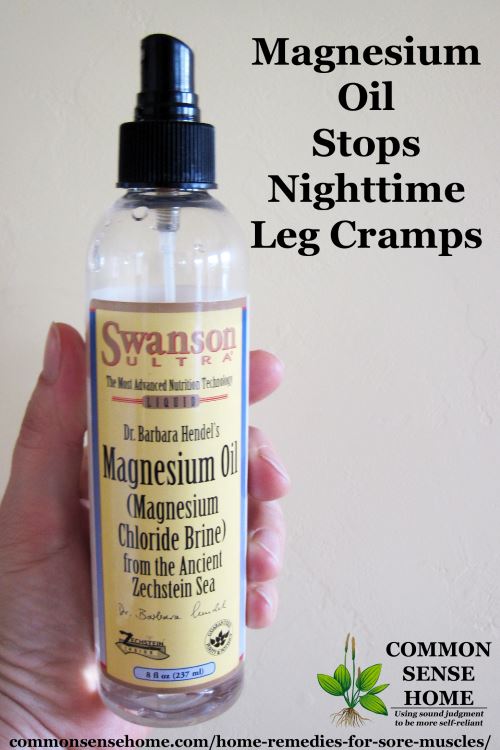
#3 – Heat or Cold – Which is Better for Sore Muscles?
A warm shower or bath is a natural muscle relaxer, which can be great for tension knotted shoulders or muscles tight from overuse. While an ice pack used to be recommended for muscle sprains, research now indicates that cold slows down the body's healing process.
The article "Is R.I.C.E. all wrong?" notes:
"Nearly everyone who ices today," says veteran athletic trainer Gary Reinl, "believes they're doing it to prevent inflammation, reduce swelling, and control pain. But here's the problem: Icing doesn't prevent inflammation or swelling; it only delays it.
Once tissues rewarm, the inflammatory process resumes and your body's innate intelligence sends the correct amount of fluid to the damage site. Although icing can provide temporary pain relief, numbing just shuts off protective signals that alert you to harmful movement. And the Journal of Athletic Medicine Research recently showed that icing actually kills muscle cells."
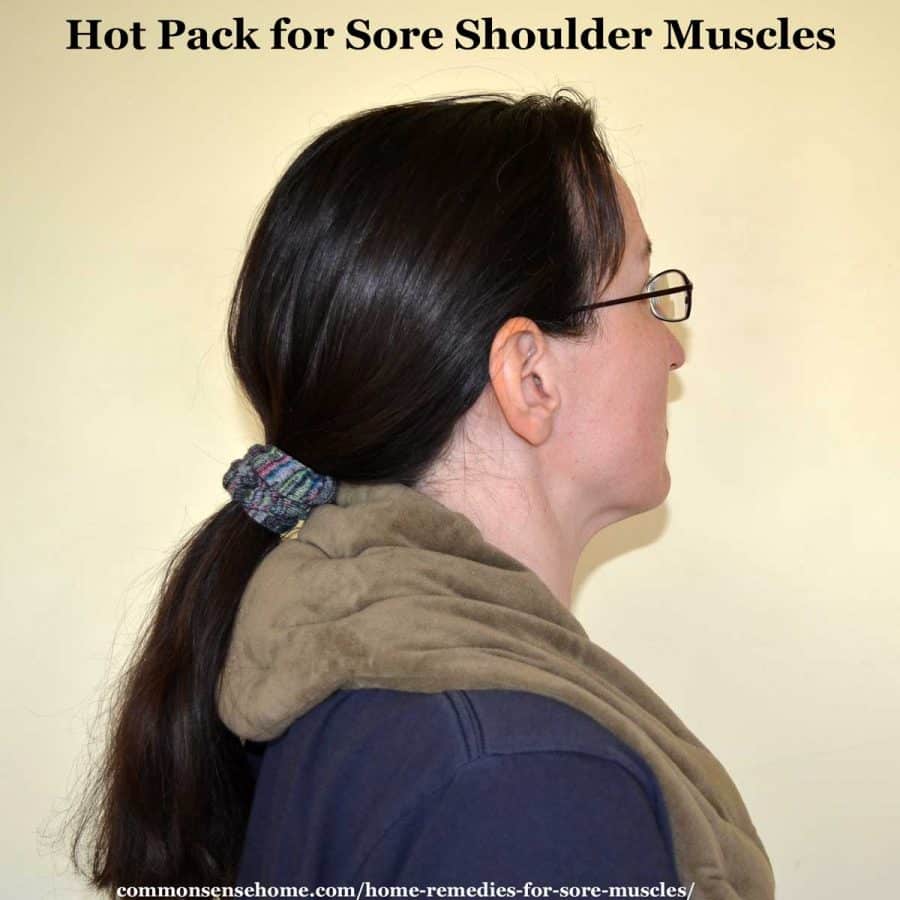
#4 – Oral Magnesium
Low levels of magnesium in the body can lead to general muscle soreness and muscle cramps. You may want to consider a magnesium supplement, but you can start by including foods that are high in magnesium in your diet.
Some of the top food sources for magnesium are:
- molasses (see below)
- squash and pumpkin seeds (pepitas)
- spinach
- Swiss chard
- cocoa powder
- black beans
- flax seeds
- sesame seeds
- sunflower seeds
- almonds
- cashews
One Earth Clinic user says 1 tablespoon of blackstrap molasses in a cup of coffee each day cured his chronic muscle pain.
Another way to get combine ACV and molasses is the old fashioned drink called Switchel, which was commonly used before the age of brightly colored sports drinks and juices shipped from around the world.
Switchel Recipe
- 1/2 cup apple cider vinegar
- 1/4 cup molasses
- 1/2 cup sugar or honey
- 1 1/2 teaspoons ground ginger
- tap water to make 2 quarts
Mix first four ingredients to blend, then add water and mix until dissolved. Chill or serve over ice, if desired.
#5 – Essential Oils for Sore Muscles
A number of essential oils and essential oils blends may be helpful for muscle pain relief.
For muscle…
- Cramps: Try lemongrass with peppermint and marjoram
- Spasms: Top recommended oils are basil, marjoram and Roman Chamomile.
- Tension: Try marjoram, peppermint, helichrysum, lavender or Roman Chamomile.
To use an essential oil for muscle pain, add one to two drops of the essential oil into one tablespoon of a carrier oil such as fractionated coconut oil or olive oil, and apply to the affected area.
#6 – Movement
Our muscles tend to want to stay doing whatever they're doing, unless we force them to change. If you're tensed up, they'll stay tensed up. Stand up, walk, run, stretch, garden – do whatever you can to be active, so you can stay active as you age. Increase blood flow = faster healing and sore muscle relief.
For injuries, a new healing acronym is A.R.I.T.A. – active recovery is the answer. Don't beat the heck out of an injury, but don't avoid moving for too long. Note: Always check with your doc for severe injuries.
#7 – Massage
Massage helps to stimulate blood circulation to an area, which speeds healing. When combined with healing oils, such as the essential oils blends listed above or pepper rub
below, you get a double benefit.
Self-massage for sore shoulder muscles…
Simple self massage for sore knees…
#8 – Hot Pepper Rubs
Capsaicin, which produces the burn in hot peppers, has been used to relive pain from arthritis, joint and muscle pain and general muscle soreness. It is available in over the counter products such as Cramer Atomic Balm Warming Cream, or you can make your own by mixing:
- 1/4 to 1/2 teaspoon of cayenne pepper, and
- one cup of olive oil or coconut oil, warm -or- aloe vera gel
Apply the rub to the affected area, and wash your hands after application. Keep the rub away from your eyes, nose and mouth – it will cause irritation. Test on a small area to make sure that it does not make you more uncomfortable instead of providing sore muscle relief. This one is not for everyone.
#9 – Rest
Sometimes the best sore muscle treatment is not do anything at all. If you rest up for a couple of days, general muscle soreness due to overexertion should pass on its own. Of course, when things get busy in the garden or on the farm, rest isn't easy to come by, so do what works for you.
Don't sit around too long, or you may make the muscle soreness worse. Remember – Active Recovery Is The Answer.
#10 – Tart Cherry Juice Helps Sore Muscles After Workout and Increases Muscle Strength
A study published in the British Journal of Sports Medicine in which volunteers drank either a cherry juice blend or a drink containing no cherry juice showed that:
Average pain scores came in at 3.2 for those drinking the dummy mixture and 2.4 for those drinking cherry juice. Pain also peaked at 24 hours for those drinking cherry juice, but continued to increase for those on the dummy mixture for the subsequent 48 hours.
The cherry juice drinkers also had better muscle strength. You can generally only find tart cherries available fresh in season or frozen, but tart cherry juice concentrate is available year round.
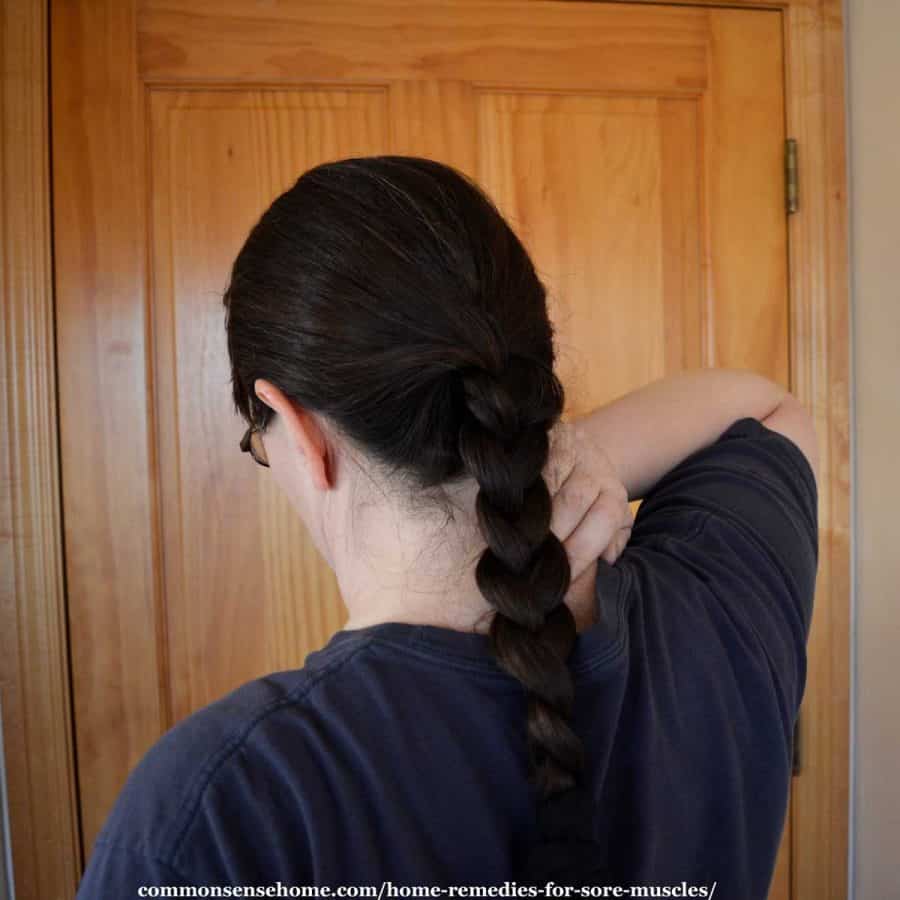
#11 – Apple Cider Vinegar (ACV)
To reduce muscle soreness, mix a tablespoon or two of apple cider vinegar in a glass of water and drink it down. Some folks drink a tablespoon straight like a shot. Still others rub the vinegar directly on the area of the sore muscle/cramp.
Don't like the taste of vinegar? Try 2 teaspoons apple cider vinegar, 1 teaspoon of honey, a sprig of fresh mint and 8 to 10 ounces of cold water, well mixed.
#12 – Coconut Oil
Try 2-3 tablespoons of virgin coconut oil per day in cooking and applied on foods like butter. if you want an easy way to eat more coconut oil, may I recommend some coconut oil fudge, which contains coconut oil and cocoa powder?
You may also enjoy the post "Natural Back Pain Relief" and other posts in the Home Remedies series.
Originally written in 2013, last updated in 2019.
What Do You Take for Sore Muscles
Source: https://commonsensehome.com/home-remedies-for-sore-muscles/
0 Response to "What Do You Take for Sore Muscles"
Post a Comment